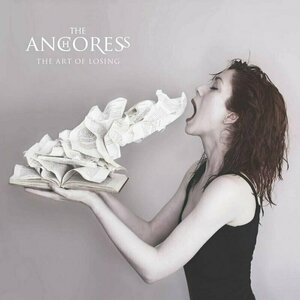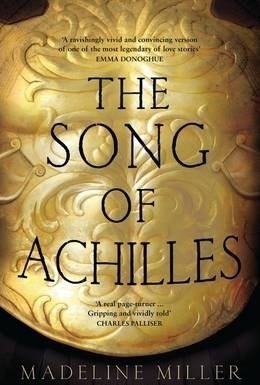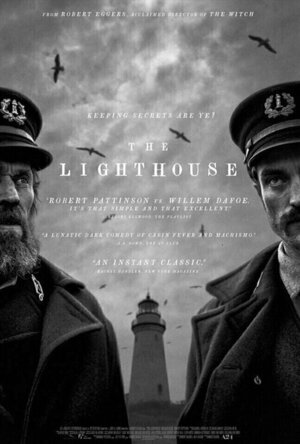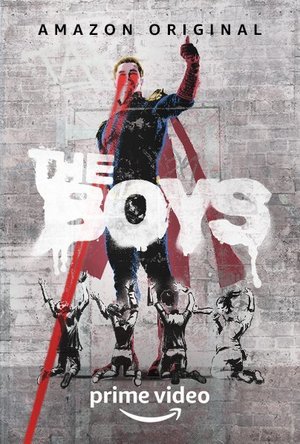Ivana A. | Diary of Difference (1171 KP) rated The Song of Achilles in Books
Jul 19, 2018
The Song Of Achilles became a part of my TBR list right after I finished reading Circe. I loved Circe and it is one of my favorite books of 2018. I also enjoyed The Song of Achilles, but not nearly as much.
For the ones out there who love greek mythology, this is a book that covers Achilles’s life told from Patroclus’s point of view. It is more or less accurate, and covers a lot of details from the early lives of these two princes. This is a story about one great friendship that turns into something more, a lot of challenges, a lot of doubts, and a lot of choices to be made during a time of war.
The story is very fast paced, and I was skipping through the pages as fast as Achilles was killing Trojan warriors. From their childhood, to their growing up, to their adventures and the war, this book will never keep you calm, because every chapter something unexpected happens. Well, sometimes not too much, as I know the story, but even still, I was surprised a lot.
A thing that bothered me a lot throughout the whole book was the inaccuracy at some points, and hiding information.
Now, we all know that Achilles was immortal. And we all know the story that his mother Thetis, a goddess of water dipped his body into the water in the river Styx. However, she was holding him by the heel, so his heel was the only place where he was vulnerable. This will be the reason of his death, when Apollo would direct Paris’s spear into Achilles’ heel.
Now - if this is such a common fact, and everybody who heard about Achilles knows it - why wouldn’t the author include it in the book. It wasn’t mentioned once.. Not once… I found this really upsetting.
Moving forward to the characters, we have Patroclus presented as the weaker one, the coward, the person that is mocked by everyone, not loved even by his parents and unworthy. ( Another point that bothered me is that this is not entirely true - according to Homer, Patroclus was apparently wiser than Achilles)
On the other hand, we have the opposite - a wise, brave, strong and handsome man, loved by everyone, immortal and a son of a goddess. We have a perfect example for a leader.
While fate connect these two to meet from their very early years, they also build a love relationship which they try to hide it at first. This relationship will cause them hatred from Thetis (Achilles’ mom) and will prompt them to make choices that might not be necessarily good ones. Now, Homer never mentioned a pederasty in his works between these two, but Miller does. And I am not sure how I feel about it. Not about the fact that they are gay, but the fact that this is Achilles.
All in all, I enjoyed this book. It is a great retelling of the story and a great time capture of the past. It wasn’t anything special, and I didn’t feel heartbroken in the end, but it was definitely worth reading it. I give it three stars - ★★★.
3 likes
Ivana A. | Diary of Difference (1171 KP) rated The Song of Achilles in Books
Aug 21, 2018
<img src="https://gipostcards.files.wordpress.com/2018/07/book-review1.png"/>;
The Song Of Achilles became a part of my TBR list right after I finished reading Circe. I loved Circe and it is one of my favorite books of 2018. I also enjoyed The Song of Achilles, but not nearly as much.
For the ones out there who love greek mythology, this is a book that covers Achilles’s life told from Patroclus’s point of view. It is more or less accurate, and covers a lot of details from the early lives of these two princes. This is a story about one great friendship that turns into something more, a lot of challenges, a lot of doubts, and a lot of choices to be made during a time of war.
The story is very fast paced, and I was skipping through the pages as fast as Achilles was killing Trojan warriors. From their childhood, to their growing up, to their adventures and the war, this book will never keep you calm, because every chapter something unexpected happens. Well, sometimes not too much, as I know the story, but even still, I was surprised a lot.
<img src="https://gipostcards.files.wordpress.com/2018/07/book-cover.png"/>;
<b><i>A thing that bothered me a lot throughout the whole book was the inaccuracy at some points, and hiding information. </i></B>
Now, we all know that Achilles was immortal. And we all know the story that his mother Thetis, a goddess of water dipped his body into the water in the river Styx. However, she was holding him by the heel, so his heel was the only place where he was vulnerable. This will be the reason of his death, when Apollo would direct Paris’s spear into Achilles’ heel.
Now - if this is such a common fact, and everybody who heard about Achilles knows it - why wouldn’t the author include it in the book. <b>It wasn’t mentioned once.. Not once… I found this really upsetting. </b>
Moving forward to the characters, we have Patroclus presented as the weaker one, the coward, the person that is mocked by everyone, not loved even by his parents and unworthy. ( Another point that bothered me is that this is not entirely true - according to Homer, Patroclus was apparently wiser than Achilles)
On the other hand, we have the opposite - a wise, brave, strong and handsome man, loved by everyone, immortal and a son of a goddess. We have a perfect example for a leader.
While fate connect these two to meet from their very early years, they also build a love relationship which they try to hide it at first. This relationship will cause them hatred from Thetis (Achilles’ mom) and will prompt them to make choices that might not be necessarily good ones. Now, Homer never mentioned a pederasty in his works between these two, but Miller does. And I am not sure how I feel about it. Not about the fact that they are gay, but the fact that this is Achilles.
All in all, I enjoyed this book. It is a great retelling of the story and a great time capture of the past. It wasn’t anything special, and I didn’t feel heartbroken in the end, but it was definitely worth reading it. I give it three stars - ★★★.
Sophia (Bookwyrming Thoughts) (530 KP) rated Salt (Salt, #1) in Books
Jan 23, 2020
I kind of gave in. I didn't regret it either, which would be second worse case scenario next to a DNF. And that would actually suck.
I'm probably Salt deprived though, and I don't mean SODIUM CHLORIDE, as much as like salty snacks. Yum.
In other words, I LOVED this book. I believe I may have "met" my next favorite author.
Do allow me to name the whys. Actually, my thoughts. Warning: there may be gushing. I hope no one minds. *fangirls* There might be a lot too. And it's in a list. Certainly not 13. That's saved for Friday the 13th. Which is in June if anyone cares.
~ It's official. I like characters with a lot of voice. Or maybe it's just a lot of sass. That tends to be a pattern.
~ WITCHES! Even better. Need I say more? I like witchy books as much as I like retellings and mythology. No wonder I loved Harry Potter. And yes, I like witches better than vampires. Sorry Vampire Academy.
~ Tis very action packed my friends. Despite the fact I took awhile to finish it. I was preoccupied with other books. Salt couldn't be crammed into le reading schedule.
~ Daemon Black, you have extreme competition. I apparently like Carter WAY better than you. He's less annoying, even though he's practically an alter ego. Maybe it's the fact that Carter is a witch. *hardly contains jumping up and down while typing* Mom, you saw no big smile on my face. Oh yeah, and let's just add that he's hot (Carter. Not Daemon. Though he is. Sort of? I am not a Daemon fan).
~ This is like Divergent and Hunger Games put together. Witch style. No killing required. Although maybe a few humans and demons were killed in the process. And I like both of those series... although I didn't really like Allegiant.
~ Like I said, I'm Salt deprived. Can someone fast forward time so I can read the second book?
~ I'm also Penelope and Carter deprived. Please, people, don't go come up with couple names like Carlope or Peneter. Couple names are so old. And definitely not cute anymore. O_o Yes, it will make them less cuter if anyone dares to add couple names. *cringe*
~ I'm going to go recommend this to a certain friend of mine. Just so I won't be alone with the gushing. Although I don't mind being the only one. I'll just say I'm talking about Funyuns. :D How do you spell that again?
Nope, definitely no regret in deciding to review Salt when offered. No regrets at all. I think it's really obvious. *walks away with a completely cheesy grin* Anyone want cheesecake? :D?
-------------------
ARC copy provided by EntangledTeen for review
Formatting and pictures have been removed due to copy and paste.
This review and more posted at <a href="http://bookwyrming-thoughts.blogspot.com/2014/01/arc-review-salt-by-danielle-ellison.html">Bookwyrming Thoughts</a>
<img src="http://4.bp.blogspot.com/-Gi5Rk5yLloA/UtliaUbdL3I/AAAAAAAACbE/J27z92_qrYU/s1600/Official+Banner.png"; />
Sophia (Bookwyrming Thoughts) (530 KP) rated Fire and Bone (Otherborn, #1) in Books
Jan 23, 2020
<strong>I can't tell if I'm <em>actually</em> disappointed with <em>Fire and Bone</em> or if I <em>feel</em> disappointed with the book.</strong>
I started Rachel A. Marks's new book right after I finished <a href="http://theartsstl.com/rin-chupeco-the-heart-forger-sourcebooks-fire/"><em>The Heart Forger</em></a>, and I was very much ruined for other books at the moment in time because Rin Chupeco's book was <em>that</em> good.
<strong><em>Fire and Bone</em> is the first novel in Marks's <em>Otherborn</em> series, which is based on Celtic mythology and set in modern-day Los Angeles.</strong> The story follows Sage, who struggles to live on her own in the streets and has the urge to burn things until she finds out she is the daughter of a Celtic goddess.
Sage is very independent - we've got the kid goes through a rough childhood and gets shifted around from foster home to foster home until they say, "Screw it!" and go off on their own (because who has time for rough homes?) trope. The one friend in her life is Ziggy, at least until she is plucked into the Otherworld where she eventually has to pledge her allegiance to one of the five main deities, known as houses.
I'm a huge fan of books that focus on character, plot and action, so <em>Fire and Bone</em>, being the first in a series, won't be a novel that I will enjoy as much compared to my reactions when (and if because so many books) I read the sequels. <strong>This novel is more of a setup - there is a lot of information about the world</strong> (though certainly not an information overload) that is revealed as Sage navigates the Otherworld and is getting attention from her bodyguard and a prince. She also tries to uncover the past that is revealed to her through dreams.
There's no surprise that <strong>there seems to be a love triangle of sorts that will most likely reveal itself</strong> in future novels. The interactions between Kieran, Faelan and Sage are telltale signs that there is probably going to be one, though I could be wrong. Assuming this <em>will</em> be a love triangle though, I'm not shipping any of them and feel it is out of place to the overall plot of the story.
<strong>I love the side characters Marks introduces to us</strong> in <em>Fire and Bone</em>. It was hard to like the characters early on, but as I continued reading the book, some of the characters had hilarious lines. I'm curious how the characters will develop in book two, so <strong>character development will be one of the things I'll be looking forward to.</strong>
Along with character development, I'm looking forward to how the plot will unfold. While a major plot point was predictable, I did <em>not</em> guess the ending of the story, and <strong>I want to KNOW what happens next</strong>. If anything, <em>Otherborn #2</em> will tear my heart to pieces and ruin me for whatever book is read next like <em>The Heart Forger</em> did.
<a href="https://bookwyrmingthoughts.com/fire-and-bone-by-rachel-a-marks-review/"; target="_blank">This review was originally posted on Bookwyrming Thoughts</a>
Neon's Nerd Nexus (360 KP) rated The Lighthouse (2019) in Movies
Mar 2, 2020
Filmed in Canada, and starring New Zealand actors Karl Urban and American Gothic’s Antony Starr, this violent and very adult take on the costumed hero mythology is enough removed from standard American sensibilities to allow it to explore itself boldly and largely uncensored. It is definitely not a show for kids!
From the opening scenes it is evident that The Boys is not afraid to use gallons of blood and gore, nudity and colourful language to emphasise its point of a world corrupt, corporate and cruel, where the falacy of the powerful being there to protect you is shown up as pure money-spinning political and media manipulation.
We follow Jack Quaid’s naive victim Hughie Cambell, as he comes to realise the true nature of the self-centred and entirely flawed “heroes” that make up The Seven – an elite collection of super-powered “freaks”, led by Starr’s superbly vain and ego-maniachal Homelander; yet ultimately controlled by the Vought corporation and its unethical CEO Madelyn Stillwell, played with nervy relish by Elizabeth Shue.
There is Translucent, who can turn his skin invisible, but has to be naked to do so, and uses it largely to lurk in women’s bathrooms… The Deep, who can speak to sea creatures, but manifests a poisonous macho air, driven by massive insecurity… and A-Train, the world’s fastest man, who is a self-serving junkie with big issues.
Into the mix comes, the newest member of The Seven, Erin Moriaty, as Annie January, aka Starlight. Who may or may not have what it takes to join the ranks of well publicised fame, if she can turn a blind eye to the sinister workings of Vought and fit in.
Meanwhile, Hughie, looking for justice and perhaps revenge, meets Will Butcher (Urban), a man with a shady past, a terrible London accent (hilariously brought to attention whenever possible), and a reason to despise and hunt The Seven to extinction. The narrative progresses through this hunt, and the revelation of many secrets, into a cat and mouse game between the powerful “heroes” and the mere mortals determined to stop them.
Arch humour presides; nothing is handled with any sense of realism, favouring spectacle over believability. The tongue is firmly in cheek throughout, and the fun comes from the inventive ways the “Supes” use and misuse their powers, versus the resourcefulness of the essentially powerless methods employed by The Boys to chase them down and bring them to justice.
There are moments when the idea overshadows the actual script, for sure. Other times when the density of characters becomes confusing and unfocused. Without spoilers, it does all go in some very interesting directions, and by the end of episode 8 and the season finale it reaches a point suggesting a tactic many new shows seem to favour. Namely, to leaves things open enough, and on a cliff edge enough, to lead it anywhere it wants to go in a second series.
I have to admit, I wasn’t always comfortable with the tone of it… but, perhaps, that is the point. I did, however, find it very entertaining, fascinatingly post-modern and allegorical. As with many of the “Supes” it could have the ability to fly… but isn’t quite there yet!

SkySafari 4 Plus: Map the Universe! Discover Sun, Moon, Mars, Stars, Planets, and Satellites with your telescope and NASA space missions!
Reference and Education
App
***SkySafari has been upgraded! For more information on the NEW SkySafari 5 Plus for iOS, visit...

The Art of Losing by The Anchoress
Album
AWARD-WINNING WELSH MULTI-INSTRUMENTALIST THE ANCHORESS RETURNS WITH HER CRITICALLY ACCLAIMED SECOND...

Gaia GPS - Hike, Hunt, Offroad
Navigation and Travel
App
Plan trips and stay safer in the woods, with Gaia GPS. Used by hundreds of thousands of...

Gaia GPS Classic
Navigation and Travel
App
►► WARNING - DOWNLOAD THE NEW APP INSTEAD Instead of buying this app (Gaia GPS Classic), please...



